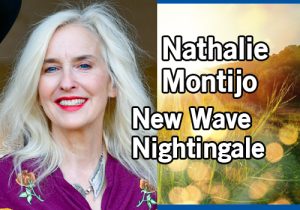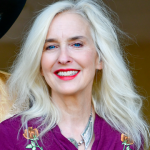Focusing on attributes of the Blue Zone lifestyle
 (Nov. 26, 2024) — Ah, blue – the color of the sky, the ocean, the eyes of a Siamese cat. Not to mention the name of phenomenal works by Joni Mitchell and Miles Davis.
(Nov. 26, 2024) — Ah, blue – the color of the sky, the ocean, the eyes of a Siamese cat. Not to mention the name of phenomenal works by Joni Mitchell and Miles Davis.
It is also the name of places associated with longevity and superior health. “Blue Zones,” where 10 times the expected number of residents consistently live past 100, sparked a great deal of interest when they first surfaced in 2004. The five original rarified areas are: Loma Linda, Calif.; Nicoya, Costa Rica; Sardinia, Italy; Ikaria, Greece; and Okinawa, Japan.
Researchers studied the habits of people in these regions and identified common themes. “There are nine common denominators. I call them the Power Nine,” said Dan Buettner, a pioneering longevity expert and bestselling author of “Blue Zones.”
1. Eat a whole-food, plant-based diet.
2. Maintain a sense of purpose and meaning. “People with a sense of purpose live about eight years longer,” Buettner observed.
3. Participate in daily rituals to unwind and reduce stress.
4. Practice moderation with alcohol consumption. According to Buettner, many residents of Blue Zones consume alcohol, but “most of the time, it’s homemade wine.”
5. Use unconscious strategies to keep from overeating. Blue Zone residents tend to eat with family and friends and stop when mostly, but not completely full.
6. Prioritize family. People in Blue Zones tend not to embrace the insular, nuclear family structure popular in most of the United States. “If you keep your aging parent nearby as opposed to putting them in a retirement home, it conveys somewhere between two and six extra years of life expectancy,” Buettner reported.
7. Invest in relationships. “Married people live longer than non-married people,” explained Buettner.
8. Belong to a faith. According to Buettner: “People who go to church, temple or a mosque live somewhere between four and 14 years longer than people who have no religion.”
9. Invest in social circles. Friendships are pivotal to Blue Zone residents, who tend to forge and maintain meaningful social circles.
While there is little to argue in the above list, there is some question around the legitimacy of Blue Zones. Dr. Saul Justin Newman, a senior research fellow at the Center for Longitudinal Studies at University College London, believes that poor record keeping in the early 20th century mixed with pension fraud makes it nearly impossible to accurately determine the age at which many of the oldest people died.
Newman’s team sifted through databases of centenarians and supercentenarians from the United States, France, England, Italy and Japan and identified “hot spots” in those countries where many of them lived. These hot spots don’t completely coincide with Blue Zones, but they noted some overlap.
Newman’s research led him to a rather cynical view: “Every indication was that these high densities of supercentenarians were just down to poverty and fraud.”
Buettner and his team counter that the Blue Zones have undergone a rigorous vetting process.
Controversy aside, all can agree that living in a supportive community with manageable stress and access to decent food can both improve and extend life. The question I have for my fellow residents of Central County is: Where can I get some of that homemade wine?
Please send comments to newwavenightingale@gmail.com.

Nathalie Montijo
Nathalie Raven Archangel-Montijo holds a rather interesting array of degrees and certifications, including master’s in nursing and traditional Chinese medicine (TCM). She has post-master certification as an adult geriatric primary care nurse practitioner (AGPCNP) and a license to practice acupuncture in California (L.Ac). To round all that out, she is certified in infection prevention and control (CIC) and as an advanced certified Hospice and palliative care nurse (ACHPN).
She also performs in the outlaw country band, Nineteen Hand Horse.
